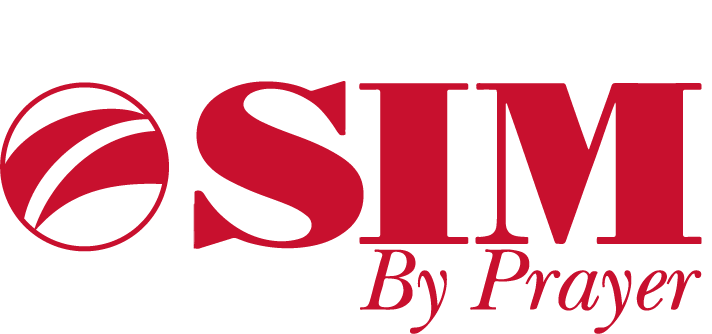Come back next month
By Tohru Inoue | Sudan and South Sudan in East Africa

Working with a leprosy patient at the Doro clinic. Photo by Neil Sandoz.
“Come back next month.”
It’s not a phrase we receive with much charity. It can sound more like a dismissal.
It seems like the response you’d get in situations where demands on a service are more than can be handled.
I imagine a busy government office clerk behind a wall of papers, biting down on a pencil as they type into an antiquated computer. Glasses hanging low on their nose, they barely make eye-contact: “Come back next month.”
Overstretched and under-resourced, they would be happy if you didn’t.
A lady came to the SIM Doro clinic in South Sudan with a list of symptoms. Staff suspected she may have leprosy but needed to be sure; medication can’t be handed out without being certain. It is also strictly regulated by the South Sudan Ministry of Health and only available in the capital.
“Come back next month,” the staff told her. They would be able to determine the diagnosis if she did. But they weren’t sure if she really would return. Many interpret that phrase ‘Come back’ as a sign that the clinic is unable to help: a quiet way to dismiss someone without saying it outright; the cue to look elsewhere for help.
I find it an act of faith for someone to hear those words and actually come back.
It reminds me of the story of the ten with leprosy who came to Jesus. They might have expected to be healed right there on the spot, but Jesus, instead, tells them to go and show themselves to the priest. It sounds like He’s just sending them away. Like He was sitting behind an inbox full of papers; all kinds of people needing a miracle. “Go show yourself to the priest.”
In Doro, a month came and went. The woman came back to the clinic. The staff, providentially delayed from leaving for a medical outreach, were pleased to see and assess her again. The picture was now clear: she, indeed, had leprosy and was immediately given medication to start treatment.
“Come back in a month,” she was told again. They wanted to see how she would do. Would she come back?
She did, and the treatment was working. God was healing her.
After the consultation our team member thanked the woman for choosing to come back. She lowered her head with a smile and gave herself the softest little clap. She was pleased. Pleased, perhaps, that her faith was rewarded.
As God said to the only one of the ten cleansed of leprosy who came back to thank Him “Your faith has healed you.”
Pray
•Thank God for the healing this woman has received.
•Defaulting on treatments is a big issue in the leprosy ministry. Pray for people to have faith to return to the clinic for follow-ups.
•Ask God to keep providing all that is needed for the Doro clinic to continue serving its community.
Related stories

Doro Clinic outreach programmes reach the forgotten with care and the gospel
In South Sudan’s Maban County, medical teams from SIM’s Doro Clinic are reaching refugees who can’t reach them, bringing healing, hope and the gospel to the sick, the stigmatised and the overlooked.

Today for Tomorrow is rooting the next generation in Christ across Southern Africa
Today for Tomorrow began with just five children when SIM mission worker Graham, Jessie and Chris Maphosa saw a gap in how children were being discipled. While serving in Zimbabwe, Chris and colleagues developed the T4T training programme to help pastors and teachers share Christ-centered lessons in ways children could understand. Today, the ministry has grown significantly and continues to shine across the region.

Our call to care for the planet goes beyond recycling: lessons on creation stewardship
As a child growing up in Canada, I thought recycling was the best way to help the planet. The world’s problems were much too big for us as children, but finally, there was something we could do as well, right from our home. But my understanding of all my efforts were turned on its head when I chatted with Ian Ratcliff, SIM's Ministry Point Person for Creation Stewardship and Care.


